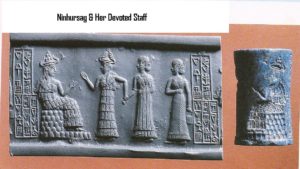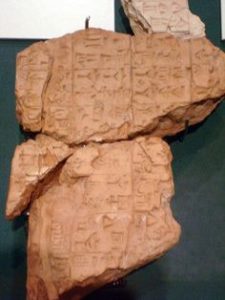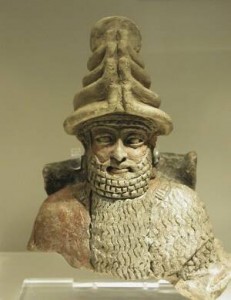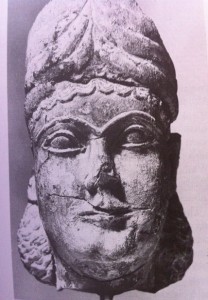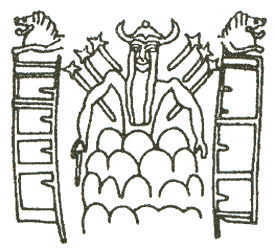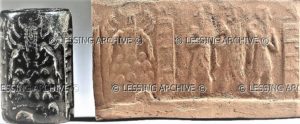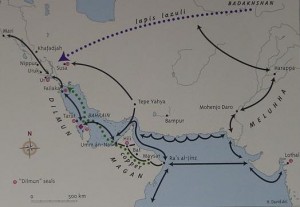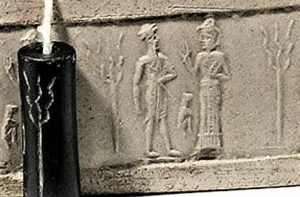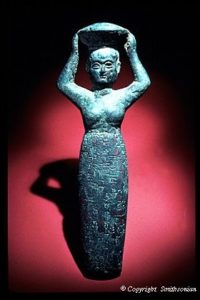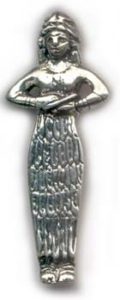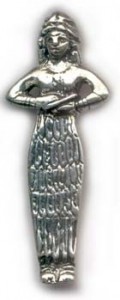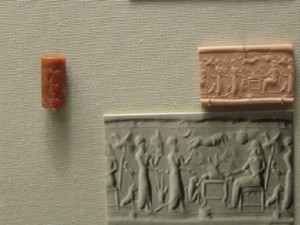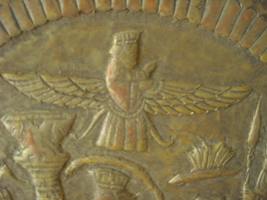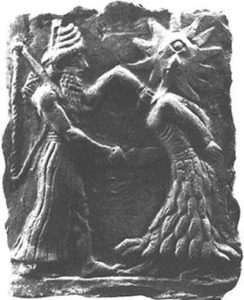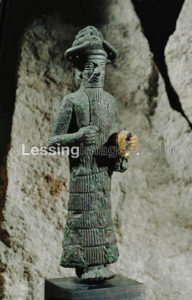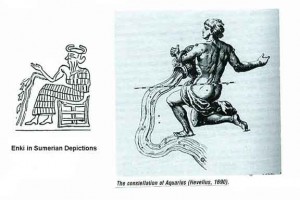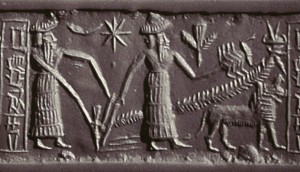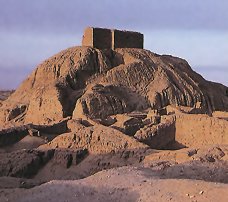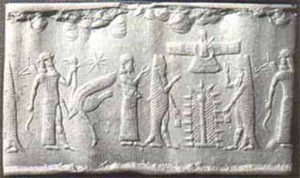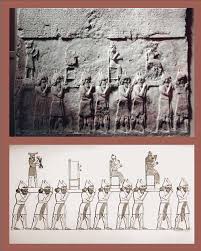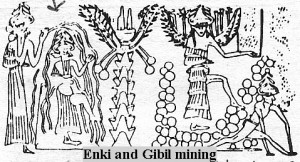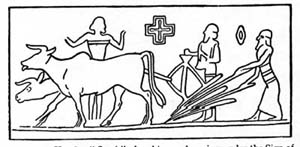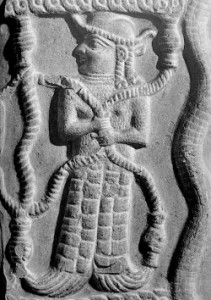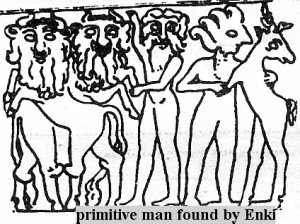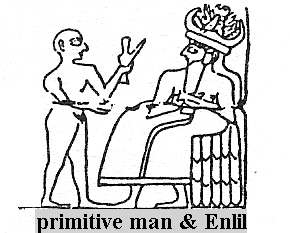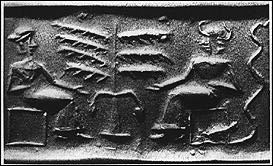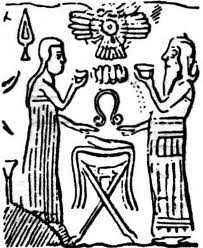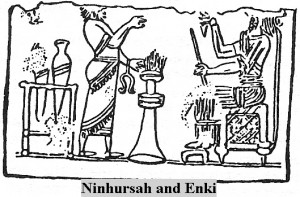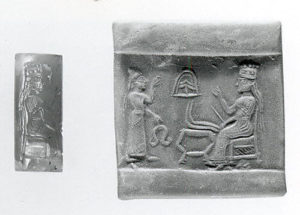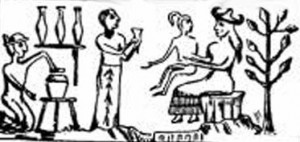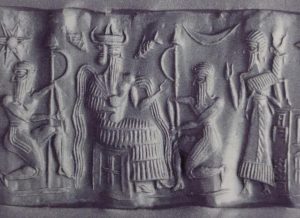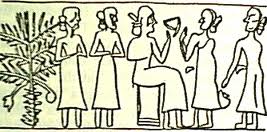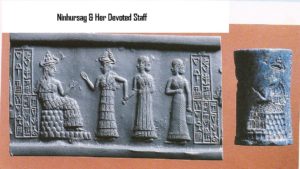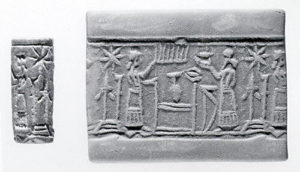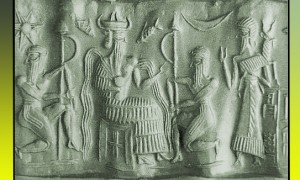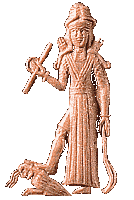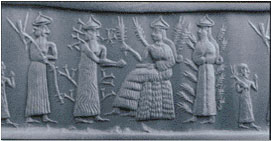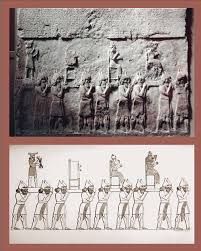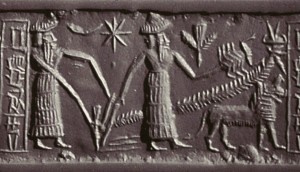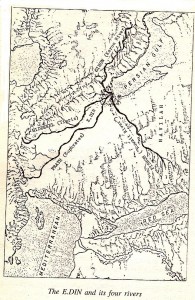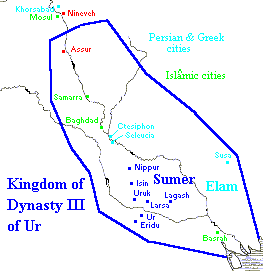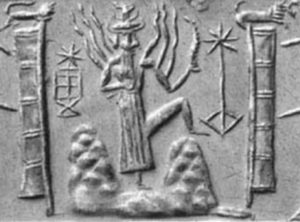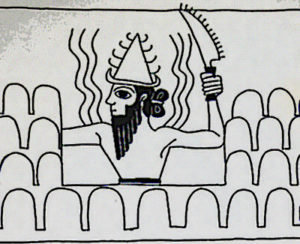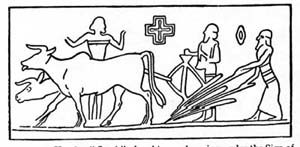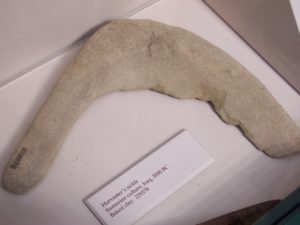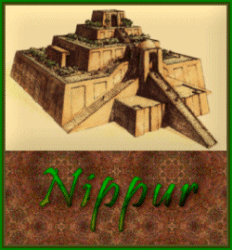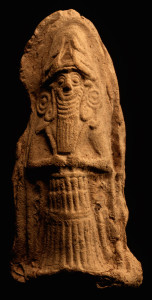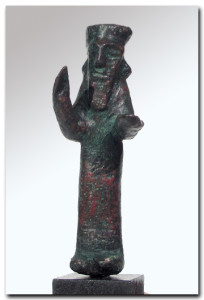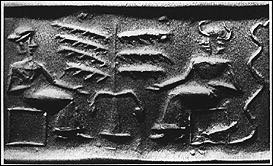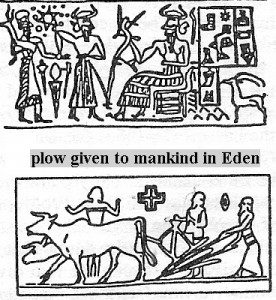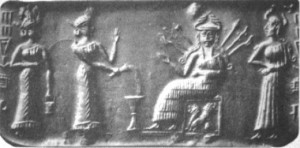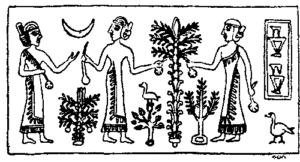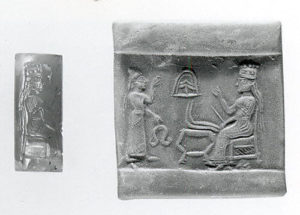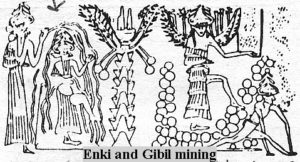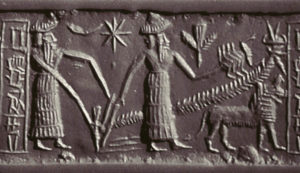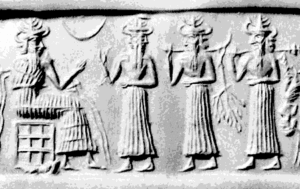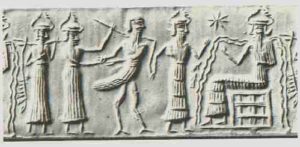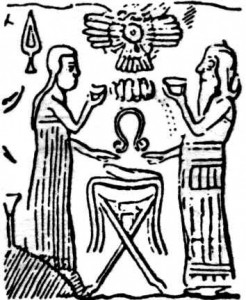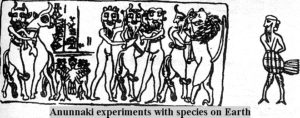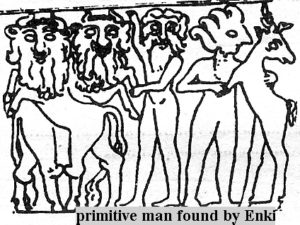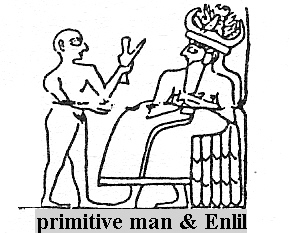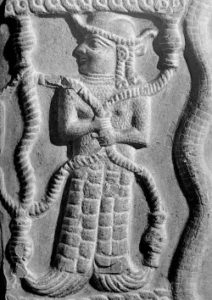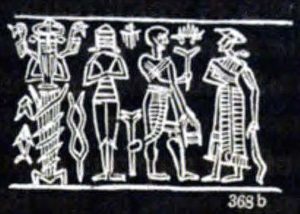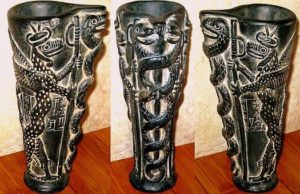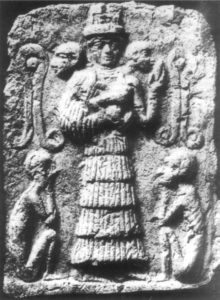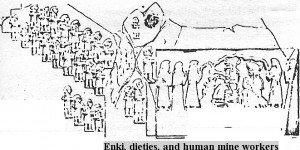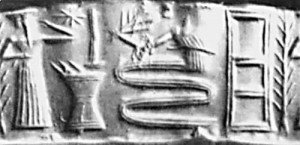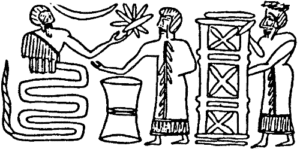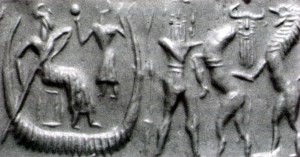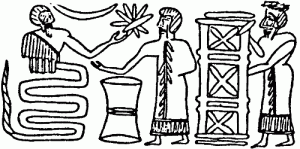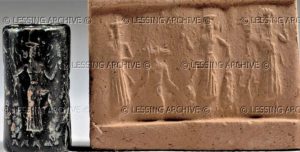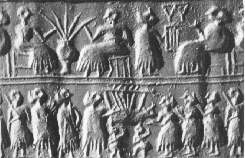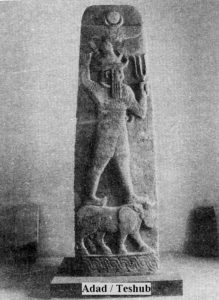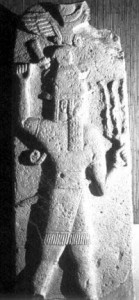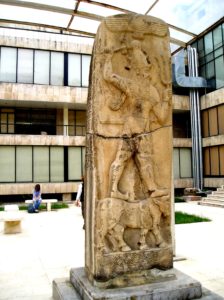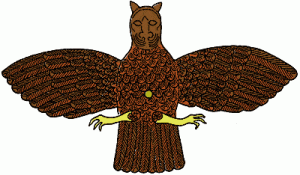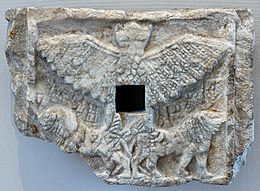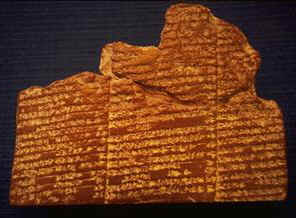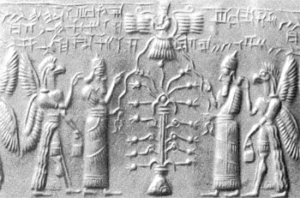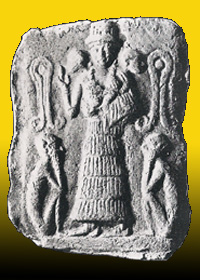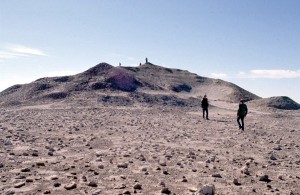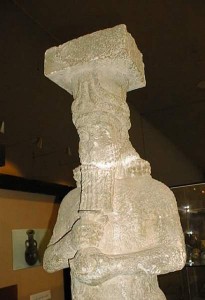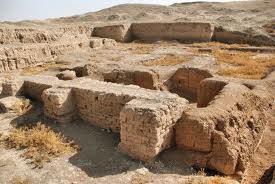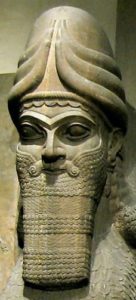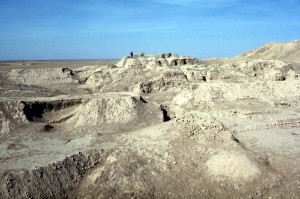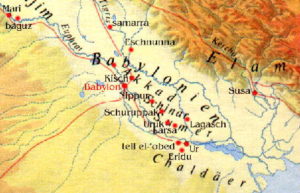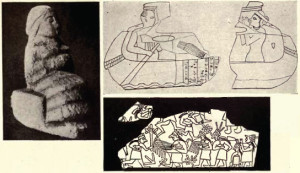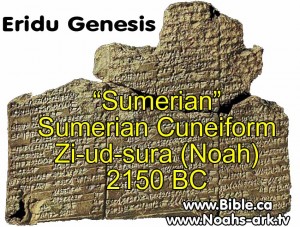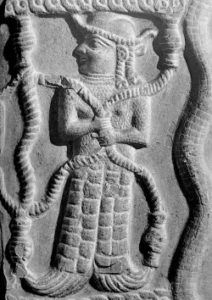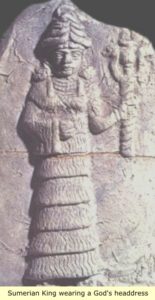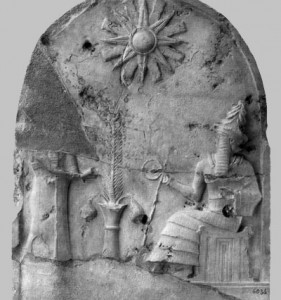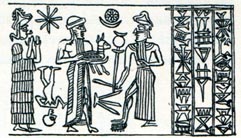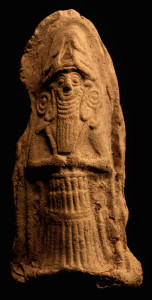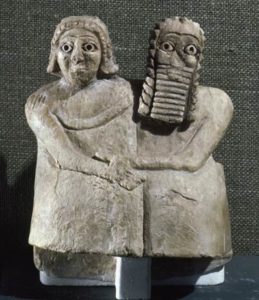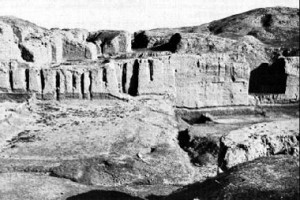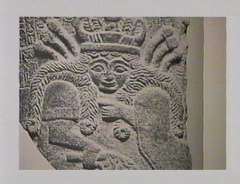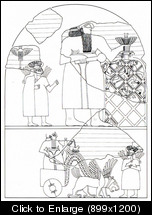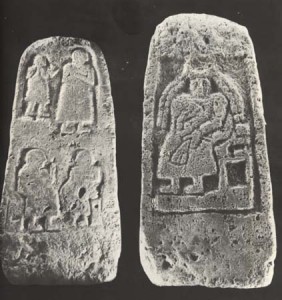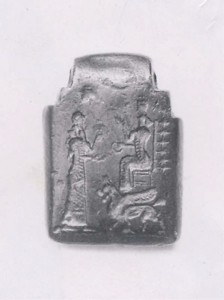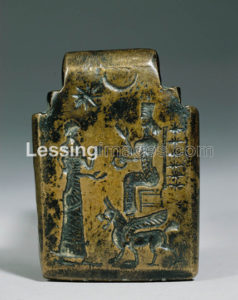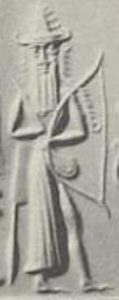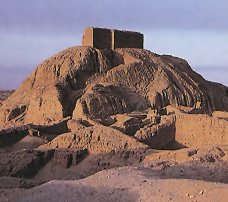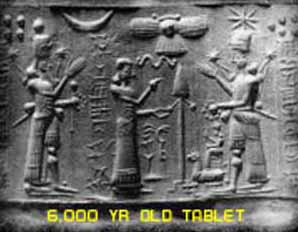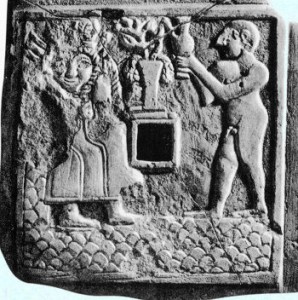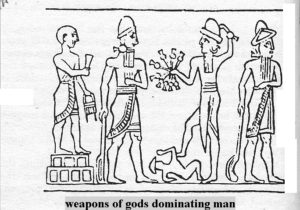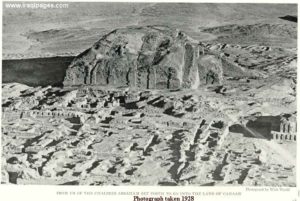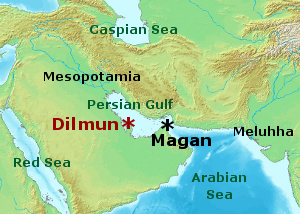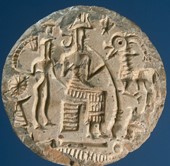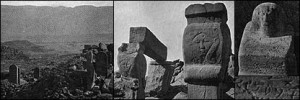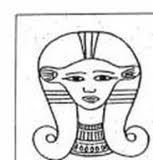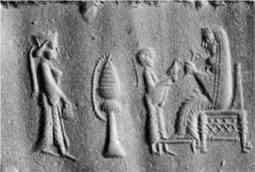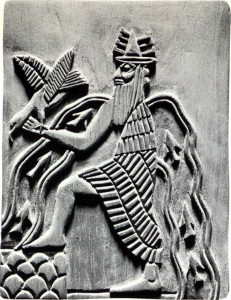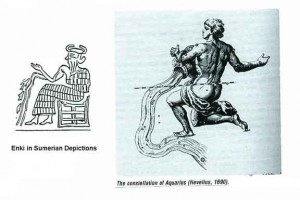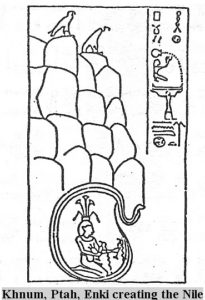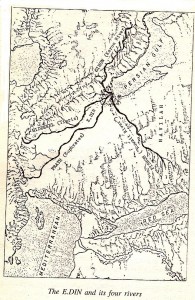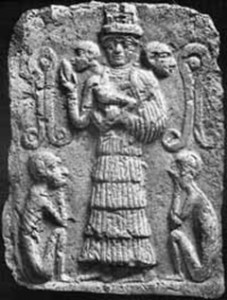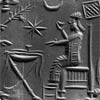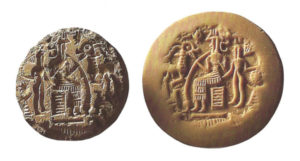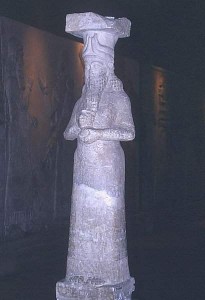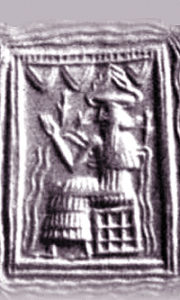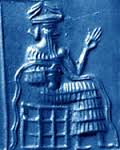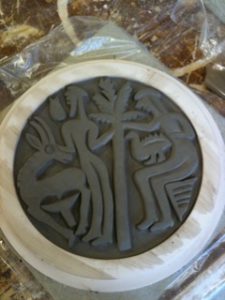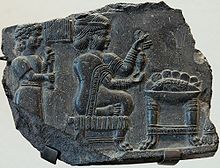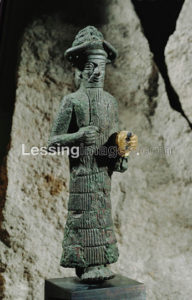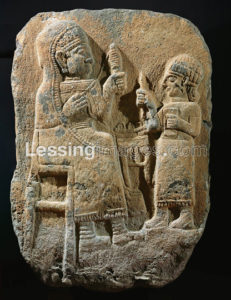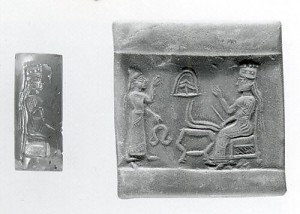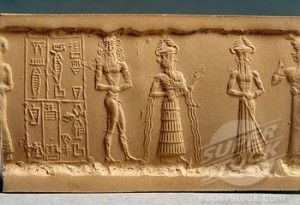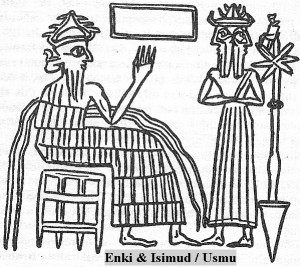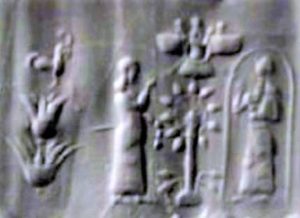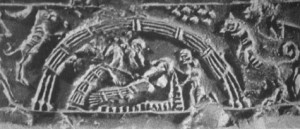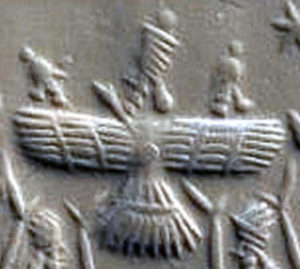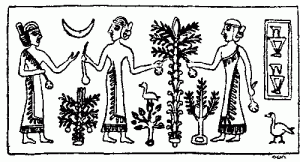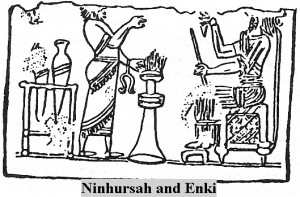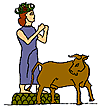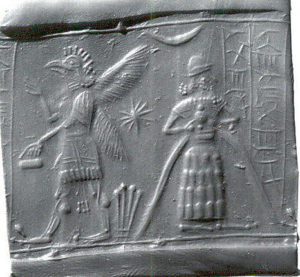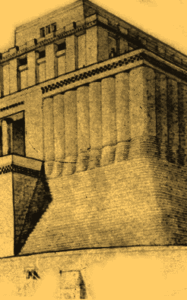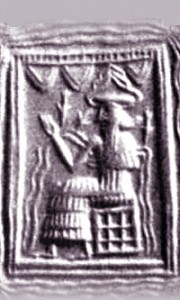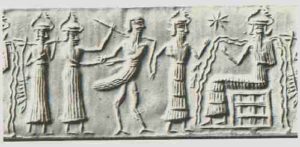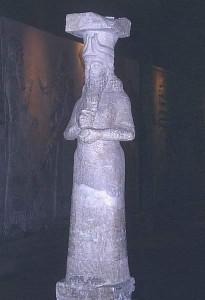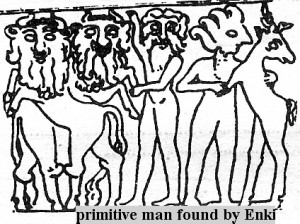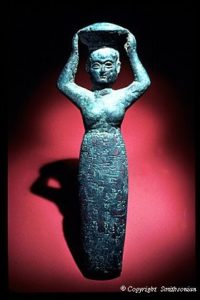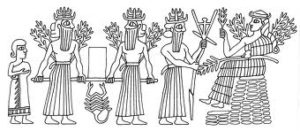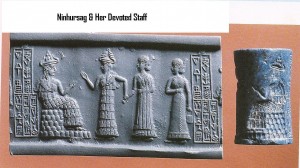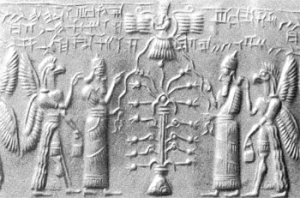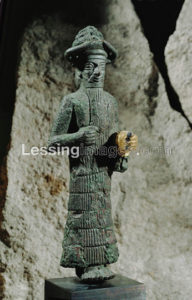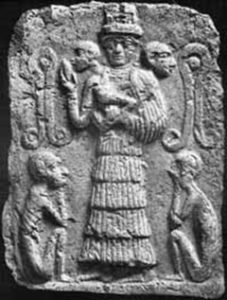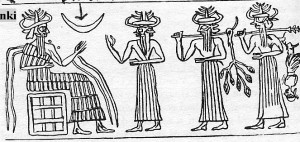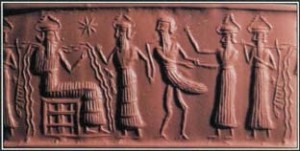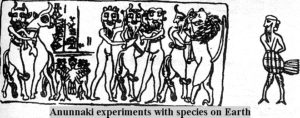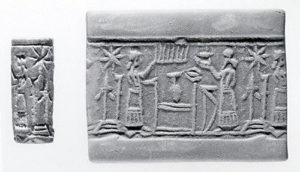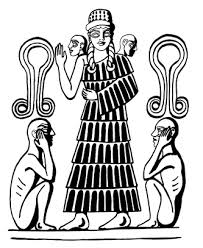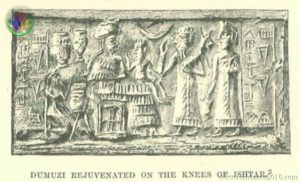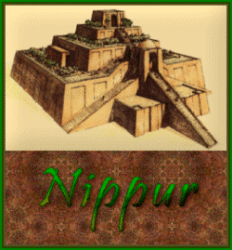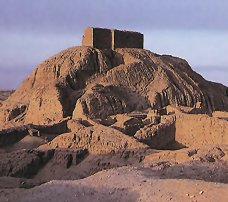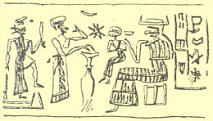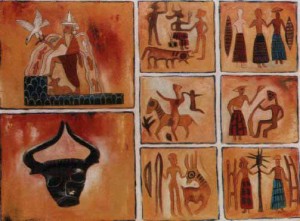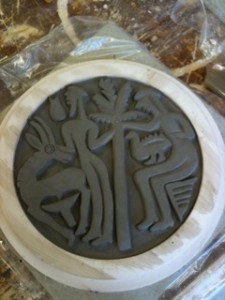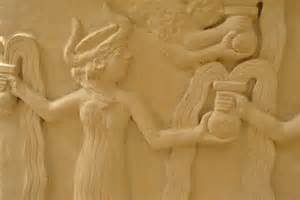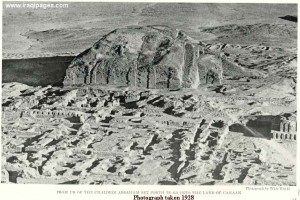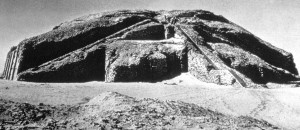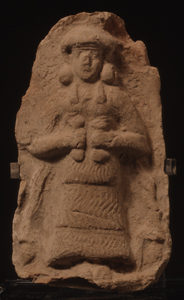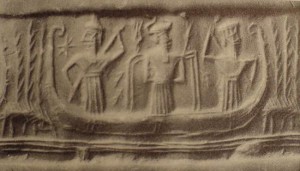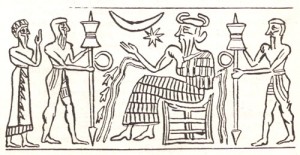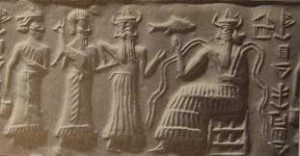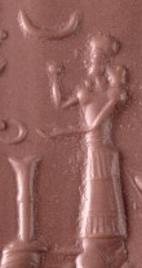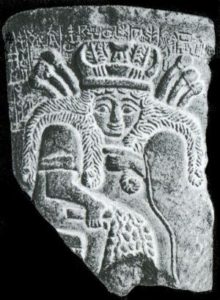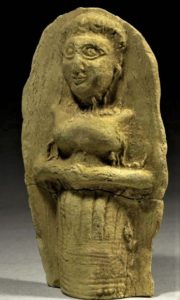(Texts: All Artifacts, Color Coding, & Writings in Bold Type With Italics Inside Parenthesis, are Added by Editor R. Brown, not the Authors, Translators, or Publishers!)
(gods in blue …mixed-breed demigods in teal…)
Martu Quotes From Texts
Martu = son of Anu & Ninhursag / Urash
married Utu’s daughter, patron god to the city Ninab…
MARIAGE OF MARTU:
“engendered by great An (Anu) and brought up on his holy knees, ……,
born by Uraš (Ninhursag),
cherished and granted a favorable destiny by the Great Mountain Enlil,…”
“Martu, august youth,
who completely controls the distant mountains as far as their borders,…
who occupies a holy dais in the mountains, the pureplace!…
whom holy An (Anu) engendered,
who appears gloriously with numerous divine powers (alien technologies)!
His own mother Ninḫursaĝa (Ninhursag) made his form excel Medim-ša’s
so that no one should threaten him.
The Anuna (Anunnaki), the great gods,
enhanced his strength with warrior qualities, and spoke favorably to him.
They invested (?) him with authority that accompanies him in battle
like a coat of armor, …… to him mace, divine weapon, a great bow,
arrows and quiver in his august hands,
made his divinity magnificently perfect,…
He grasps the seven winds, makes fire ……,
subduing all in battle and fight, …… like lightning…”
“For the king, he annihilates all enemy lands that are not compliant to him.
Martu, the son of An, extends a hand to the good shepherd…
his own father, the lord of the gods,…
he presented to him the Martu lands, the lapis-lazuli mountains…
he is the king’s helper in battle… Martu, son of An…”
Enki & Ninhursag have daughters
(in search of an heir for Enki by his sister Ninhursag)
Ninsar Quotes From Texts
Ninsar = Ninhursag & Enki’s daughter, Ninkurra’s mother
goddess of Green Fields and Luscious Meadows
“Enki distributed his semen destined for Damgalnuna (Ninhursag).
He poured semen into Ninhursaja’s (Ninhursag) womb
and she conceived the semen in the womb, the semen of Enki.
But her one month was one day,
but her two months were two days,
but her three months were three days,
but her four months were four days,
but her five months were five days,
but her six months were six days,
but her seven months were seven days,
but her eight months were eight days,
but her nine months were nine days.
In the month of womanhood, like juniper oil, like juniper oil,
like oil of abundance, Nintud, mother of the country,
like juniper oil, gave birth to Ninsar. …”
“Nine days later, without the slightest labor or pain,
the Great Mother Goddess gave birth to a lovely girl
without the slightest travail or pain.
The girl was called Ninsar, Lady Verdure,
the Mistress of Vegetation, the green carpet of grass, leaves
and flower beds that cover the surface of the earth…”
“Enki was overjoyed with the birth of his and Ninhursag’s child:…”
“’How perfect, how lovely is our Ninsar!
I love already the woman in the girl-child,
the young Anunnaki goddess and Mistress of Velvet Meadows and Green Fields.
The ties that bind me to Ninsar are strong” and tempered by an even greater love,
for in her face I see also Ninhursag’s, the one and only to my wandering heart.’
The Great Lady, holding Ninsar in her arms, kissed Enki in the mouth, and said:
‘Soon my time to leave Dilmun will come,
I endow Ninsar with the power to grow in record time,
and in holy Dilmun I’ll leave my youngster daughter
safe and sound from any illness, hatred or harm.’ …
nine days later Ninsar was fully grown, charming and graceful, a sight to behold.
…Enki saw Ninsar walking on her own along the marshlands.
Indeed, a lovely goddess she had become, and Enki’s eyes fell on the Maiden’s,…”
“Enki did not lose time and immediately started wooing the young lady,
encouraging her to love him wildly by the riverside.
Curious and eager as Ninsar was to experience the power of love in her body,
mind, soul, and heart,
she, the young goddess of Green Fields and Luscious Meadows,
yielded to the Sweet Waters Lord, and together they made wild love.
But when morning came, Enki looked into Ninsar’s eyes and found her a loving,
but pale portrait of Ninhursag…”
“Enki stayed with Ninsar for a while, because he knew his seed could be her womb.
So he stayed with her until the ninth day, when Ninsar gave birth to Ninkurra,
another girl-child, the future goddess of Mountain Pastures…”
“Sadly, Ninsar realized that although she had been
passionately loved by Enki for a time,
there was a longing in his eyes, his body, soul and mind she could not satisfy.
‘Bonded to him I for a time was,’ thought Ninsar,
‘but he does not want me for myself, this I can tell.
Mine is not the mind, body, soul and heart
that holds his for a minute that means eternity,
so I’ll let him go, now and forever’…”
“In turn Ninsar went out to the riverbank.
Enki was able to see up there from in the marsh, he was able to see up there, he was.
He said to his minister Isimud:
‘Is this nice youngster not to be kissed? Is this nice Ninsar not to be kissed?’
His minister Isimud answered him:
‘Is this nice youngster not to be kissed? Is this nice Ninsar not to be kissed?’…”
“First he put his feet in the boat, next he put them on dry land.
He clasped her to the bosom, kissed her,
Enki poured semen into the womb and she conceived the semen in the womb,
the semen of Enki.
But her one month was one day, but her two months were two days,
but her nine months were nine days.
In the month of womanhood, like juniper oil, like juniper oil, like oil of abundance,
Ninsar, like juniper oil, like juniper oil,
like oil of abundance, gave birth to Ninkura...”
Ninkurra Quotes From Texts
Ninkurra = daughter by Enki & Ninsar
(grand-daughter to Ninhursag)
Uttu & Ninimma’s mother
“Ninsar gave birth to Ninkurra, another girl-child,
the future goddess of Mountain Pastures.
As before, Enki rejoiced at Ninkurra’s loveliness,
at her cheerful smile and sweet face.
Again, Enki saw in Ninkurra twice the mark of his beloved Ninhursag…”
“ Ninkurra, who, like herself, grew in record time.
Lovely, resourceful Ninkurra demonstrated enormous energy
by climbing the highest heights, up to the mountain tops,
but also keeping her essence tied to the ground.
This way Ninkurra, the Goddess of Mountain Pastures
grew safe from all hatred or harm.
Another nine days passed by, and as Ninkurra played at a mountain top,
curiosity led her to explore a well that surfaced out of the blue to water the greens
and wild flower beds she had just made grow.
To her sheer surprise and delight, the well took the shape of a handsome god,
who introduced himself to her as Enki the Sweet Waters Lord.
Again, Enki looked at Ninkurra’s young and cheerful face,
and desired to dive into the maiden’s embrace,
for she reminded him twice of Ninhursag,…”
“Ninkurra, who had lived a life so sheltered at the mountain heights,
was fully bewitched by the easy charm of the older, more experienced god.
Thus she joyously yielded to him and love they made for nine days and nine nights.
But Enki soon realized that as lovely as Ninkurra was,
she could not be compared to Ninhursag.
As before, the Sweet Waters Lord left Ninsar after nine days,
when Ninkurra gave birth to another lovely girl-child called Uttu,
the Spider, the Weaver of Patterns and Life Desires…”
“Ninhursag…frowned at the sadness reflected in Ninsar’s and Ninkurra’s eyes,
and frowned at Enki’s unbridled lust…”
“In turn Ninkura went out to the riverbank.
Enki was able to see up there from in the marsh, he was able to see up there, he was.
He said to his minister Isimud:
‘Is this nice youngster not to be kissed? Is this nice Ninkura not to kissed?’
His minister Isimud answered him:
‘Kiss this nice youngster. Kiss this nice Ninkura.
My master will sail, let me navigate.
He will sail, let me navigate.’
First he put his feet in the boat, next he put them on dry land.
He clasped her to the bosom, kissed her,
Enki poured semen into the womb and she conceived the semen in the womb,
the semen of Enki.
But her one month was one day, but her nine months were nine days.
In the month of womanhood, like juniper oil, like juniper oil, like oil of abundance,
Ninkura, like juniper oil, like juniper oil, like oil of abundance,
gave birth to Uttu, the exalted (?) woman…”
“Ninkura in turn gave birth to Ninimma (instead of Uttu).
She brought the child up and made her flourish.
Ninimma in turn went out to the riverbank.
Enki was towing his boat along and was able to see up there, …….
He laid eyes on Ninimma (Enki & Ninkura’s daughter) on the riverbank …”
Ninimma Quotes From Texts
Ninimma = Enki & Ninkurra’s daughter
(great-grand-daughter of Ninhursag’s)
“Ninkura in turn gave birth to Ninimma.
She brought the child up and made her flourish…”
“Ninimma in turn went out to the riverbank.
Enki was towing his boat along and was able to see up there, …….
He laid eyes on Ninimma on the riverbank and said to his minister Isimud:
“‘Have I ever kissed one like this nice youngster?
Have I ever made love to one like nice Ninimma?’
His minister Isimud answered him:
‘My master will sail, let me navigate.
He will sail, let me navigate.’
First he put his feet in the boat, next he put them on dry land.
He clasped her to the bosom, lying in her crotch,
made love to the youngster and kissed her.
Enki poured semen into Ninimma’s womb
and she conceived the semen in the womb, the semen of Enki.
To the woman its one month was but its one day,
its two months were but its two days, its three months were but its three days,
its four months were but its four days, its five months were but its five days,
its six months were but its six days, its seven months were but its seven days,
its eight months were but its eight days, and at its nine days,
in the month of womanhood, like juniper oil, like juniper oil, like oil of abundance,
Ninimma, like juniper oil, like oil of abundance,
gave birth to Uttu, the exalted (?) woman…”
“Let Ninmah (Ninhursag) act as your assistant;
and let Ninimma, Cu-zi-ana, Ninmada, Ninbarag, Ninmug, ……
and Ninguna stand by as you give birth…”
Nina Quotes From Texts
Nina = Enki & Ninhursag’s daughter via Uttu
goddess of Oracles
“O Nina, Hea’s (Enki’s) daughter! …”
“may the goddess Ninâ the mistress of interpretations,…”
“For the goddess Ninâ, the lady of destinies (?), the lady of oracles (?),
for his lady, Gudea the patesi of Shirpurla has made the dedicatory inscriptions (?).
In Ninâ-ki, her favorite city, her temple of E-ud-mâ-Ninâ-ki-tag
which rises from the Kur-ê he has constructed…”
“For the goddess Ninâ, the lady of destinies (?), the lady of oracles (?),
for his mistress, Dungi (King Shulgi) the puissant prince, the king of Ur,
the king of Shumer and Accad, the temple of E-shish-shish-e-ma-ra,
her favorite temple, has constructed…”
“he (Ur-Nanshe) has erected.
The temple of the goddess Ninâ…”
“may the goddess Nin-marki the eldest daughter of the goddess Ninâ...”
“For the goddess Nin-mar-ki (Enki’s daughter), the good lady,
the eldest daughter of the goddess Niná…”
“En-anna-tumma, the patesi Of Shirpurla-ki,
the chosen of the heart of the goddess Ninâ,
the great patesi of the god Nin-girsu (Ninurta),
the son of Entena the patesi of Shirpurla-ki…”
“By harvesting, the men of Umma had eaten one storehouse-full
of the grain of Nina [goddess of Oracles], the grain of Ningirsu;…”
“Urlumma, ruler of Umma drained the boundary canal of Ningirsu,
the boundary canal of Nina;…”
“Ili, ruler of Umma, wickedly flooded the dyked and irrigated field;
he commanded that the boundary canal of Ningirsu;
the boundary canal of Nina be ruined….
Enlil and Ninkhursag did not permit [this to happen].
Entemena, ruler of Lagash, whose name was spoken by Ningirsu,
restored their canal to its place according to the righteous word of Enlil,
according to the righteous word of Nina,…”
“Ur-Bau (mixed-breed), the patesi of Shirpurla-ki,
the offspring begotten by the god Nin-âgal (Enki’s son),…
chosen by the immutable will of the goddess Niná,…”
Ninmarki Quotes From Texts
Ninmarki = Enki & Nina’s daughter
“may the goddess Nin-marki the eldest daughter of the goddess Ninâ…”
“Ur-Bau;…For the goddess Nin-mar-ki the good lady,
the eldest daughter of the goddess Niná (Enki’s daughter),
the Esh-gu-tur, the temple of her constant choice, he has constructed…”
“Nance, the noble daughter, was settled outside the city.
Fire approached Ninmarki in the shrine Gu-aba.
Large boats were carrying off its silver and lapis lazuli.
The lady, sacred Ninmarki, was despondent because of her perished goods.
Then the day ……, burning like …….
The province of Lagac (Lagash) was handed over to Elam…”
“For the goddess Nin-mar-ki the good lady,
the eldest daughter of the goddess Niná, the Esh-gu-tur (?),
the temple of her constant choice, he (Ur-Nanshe) has constructed…”
“She of Gu-aba has abandoned it and has let the breezes haunt her sheepfold.
Ninmarki has abandoned the shrine Gu-aba
and has let the breezes haunt her sheepfold…”
Uttu Quotes From Texts
Uttu = Enki & Ninimma’s daughter,
sometimes Enki & Ninkurru’s daughter
goddess of clothing, weaving
Uttu As Ninimma’s Daughter:
“Ninimma, like juniper oil, like oil of abundance,
gave birth to Uttu, the exalted (?) woman.
Nintud (Ninhursag) said to Uttu:
‘Let me advise you, and may you take heed of my advice.
Let me speak words to you and may you heed my words.
From in the marsh one man is able to see up here, is able to see up here, he is;
from in the marsh Enki is able to see up here, is able to see up here, he is.
He will set eyes on you.’
10 lines fragmentary
…… Uttu, the exalted (?) woman ……
3 lines fragmentary
( Uttu said:)
‘Bring cucumbers in ……, bring apples with their stems sticking out (?),
bring grapes in their clusters, and in the house
you will indeed have hold of my halter,
O Enki, you will indeed have hold of my halter.’
When he was filling with water a second time,
he filled the dykes with water, he filled the canals with water,
he filled the fallows with water.
The gardener in his joy rose (?) from the dust and embraced him:
‘Who are you who …… the garden?’
Enki (said to) …… the gardener:
4 lines missing
He brought him cucumbers in ……,
brought him apples with their stems sticking out (?),
brought him grapes in their clusters, filled his lap.
Enki made his face attractive and took a staff in his hand.
Enki came to a halt at Uttu’s, knocked at her house (demanding): ‘Open up, open up.’
(She asked): ‘Who are you?’
(He answered:) ‘I am a gardener.
Let me give you cucumbers, apples, and grapes for your …Yes’.
Joyfully Uttu opened the house. Enki gave Uttu, the exalted (?) woman,
cucumbers in ……, gave her apples with their stems sticking out (?),
gave her grapes in their clusters. (1 line not in the ms. from Nippur:
He poured beer for her in the large ban measure.)
Uttu, the exalted (?) woman, …… to the left for him, waved the hands for him.
Enki aroused Uttu.
He clasped her to the bosom, lying in her crotch,
fondled her thighs, fondled her with the hand.
He clasped her to the bosom, lying in her crotch,
made love to the youngster and kissed her.
Enki poured semen into Uttu’s womb
and she conceived the semen in the womb, the semen of Enki.
Uttu, the beautiful woman, cried out :
‘Woe, my thighs’. She cried out: ‘Woe, my liver. Woe, my heart.’
Ninhursaja (Ninhursag) removed the semen from the thighs…
Ninhursaja cursed the name Enki:
‘Until his dying day, I will never look upon him with life-giving eye.’…”
“and since in the Land he neither fashioned the yarn of Uttu
(the goddess of weaving) nor pegged out the loom for Uttu…”
“There was no cloth to wear; Uttu had not been born —
no royal turban was worn;…”
“All the yarns of Uttu, the splendor of kingship, belong to me…”
“For Enki the people…the…garment.
The one who is the dignity of the palace, the decorum of the king,
Uttu, the unfailing woman of silence, Enki placed in charge of them…”
“The tiara (?) of the palace, the jewel of the king,
Uttu, the trustworthy woman, the joyous (?), Enki placed in charge of them…”
Uttu As Ninkurra’s Daughter:
“Enki poured semen into the womb
and she conceived the semen in the womb, the semen of Enki.
But her one month was one day, but her nine months were nine days.
In the month of womanhood, like juniper oil,
like juniper oil, like oil of abundance,
Ninkura, like juniper oil, like juniper oil,
like oil of abundance, gave birth to Uttu, the exalted (?) woman. …”
“Ninkurra, who had lived a life so sheltered at the mountain heights,
was fully bewitched by the easy charm of the older, more experienced god.
Thus she joyously yielded to him and love they made for nine days and nine nights.
But Enki soon realized that as lovely as Ninkurra was,
she could not be compared to Ninhursag.
As before, the Sweet Waters Lord left Ninsar after nine days,
when Ninkurra gave birth to another lovely girl-child called Uttu,
the Spider, the Weaver of Patterns and Life Desires…”
“Nintud (Ninhursag) said to Uttu:
‘Let me advise you, and may you take heed of my advice.
Let me speak words to you and may you heed my words.
From in the marsh one man is able to see up here, is able to see up here, he is;
from in the marsh Enki is able to see up here, is able to see up here, he is.
He will set eyes on you.’…”
“Ninhursag…frowned at the sadness reflected in Ninsar’s and Ninkurra’s eyes,
and frowned at Enki’s unbridled lust.
Ninhursag knew how charming Enki could be,
but no matter what, young Uttu the Weaver
should be advised to avoid the riverbanks,
or the places where Enki and herself could be found alone or unchaperoned:
‘Daughter Uttu, beware of the marshes and the riverbanks,
where Enki, the Sweet Waters god, reigns as Sovereign.
There he will see you, there he will desire you and want to make of you his own,
only to leave you all alone later on!’ was Ninhursag’s stern advice to Uttu.
For a time young Uttu did follow the Great Lady’s advice
and kept her distance from Enki’s lusty sight.
But one day Enki’s desire won the young goddess’ heart,
when he brought to her delicacies from the garden of delights:
apples, cucumbers and grapes, all this and more Enki offered to the young goddess.
Then Uttu, full of joy, opened herself to welcome Enki, the crafty god,
and he embraced her with heartfelt glee, lying in her lap content and happy.
Loving strokes, kisses and hugs they shared,
until Enki’s seed found its way to Uttu’s young and yet untried womb.
Later, still lying on Enki’s powerful arms,
doubt entered Uttu’s mind, body and heart:
‘Tonight you loved me so dearly, tonight I was your spouse,
the one and only, your dearest,’ she thought .
‘But will you love me in the morning, o lustiest of all gods?
Will you stay in my arms and never let me go
And will you love for more than a holy night,
and share with me happy and hard times?’
But when morning came and Uttu looked into Enki’s eyes,
she knew she still was not the one to hold captive the Sweet Waters Lord.
With a tender kiss Enki took his leave,
but did not say when he was going to come back, or ever returned to stay.
Uttu swallowed stubborn tears,
but decided not to surrender to loss and sorrow, and more.
‘I vow not to be bonded to Enki from this moment on,’
she promised herself with a deep-rooted resolve.
‘If he does not want me for myself, for what we can together be,
I will not carry any of his seeds within or without my very being!’
Uttu immediately turned then to Ninhursag for help.
The Great Mother goddess, beloved by all, would know what to do,
would ensure the best course of action.
‘Wipe out Enki’s seed of your body,
and bury within the depths of the Earth the promise of life you shared with him,’
said the Great Lady and Womb of Creation.
‘Let the Earth receive and transform yours and Enki’s seed.
And after you do this all, take your time so that your body,
heart, mind and soul may heal.
And I, who have known love, pain, sorrow and immense joy, give you,
daughter, a very special blessing:
may the wisdom of experience brought by such pain enter your being again
and may you learn to ask as much as you give from your future lovers
for as long as you live.
Reciprocation is the key for everlasting relationships!’…”
8 Children of Enki & Ninhursag via Uttu
Ninhursaja made Enki sit by her vagina.
(1 line not in the ms. from Nippur:
She placed (?) her hands on …….
and ……. on its outside.)
(Ninhursaja asked:)
“My brother, what part of you hurts you?”
“The top of my head (ugu-dili) hurts me.”
She gave birth to Ab-u out of it.
“My brother, what part of you hurts you?”
“The locks of my hair (siki) hurt me.”
She gave birth to Ninsikila out of it.
“My brother, what part of you hurts you?”
“My nose (giri) hurts me.”
She gave birth to Ningiriudu out of it.
“My brother, what part of you hurts you?”
“My mouth (ka) hurts me.”
She gave birth to Ninkasi out of it.
“My brother, what part of you hurts you?”
“My throat (zi) hurts me.”
She gave birth to Nazi out of it.
“My brother, what part of you hurts you?”
“My arm (a) hurts me.”
She gave birth to Azimua out of it.
“My brother, what part of you hurts you?”
“My ribs (ti) hurt me.”
She gave birth to Ninti out of it.
“My brother, what part of you hurts you?”
“My sides (zag) hurt me.”
She gave birth to Ensag out of it.
(She said:) “For the little ones to whom I have given birth
may rewards not be lacking.
Ab-u shall become king of the grasses, (#1)
Ninsikila shall become lord of Magan (Egypt, #2),
Ningiriudu shall marry Ninazu,(#3)
Ninkasi shall be what satisfies the heart, (#4)
Nazi shall marry Nindara, (#5)
Azimua shall marry Ninjiczida, (#6)
Ninti shall become the lady of the month, (#7)
and Ensag shall become lord of Dilmun (Sinai).” (#8)
(#1)Abu Quotes From Texts
Abu = Enki & Ninhursag’s son via Uttu
god of the grasses, vegetation, sprung from head of Enki
“Enki heard Ninhursag’s voice resonate all over his being:
‘The first seed you ate and made you ill,
I take its power into my myself and transform it into a newly born god,
a younger brother and son to you, dearest.
I therefore have given birth to the god Abu to set your body free.’…”
“( Ninhursaja asked:)
‘My brother, what part of you hurts you?’
‘The top of my head (ugu-dili) hurts me.’
She gave birth to Ab-u out of it…”
“Let Abu be the master of plants;…”
“(She (Ninhursag) said:)
‘For the little ones to whom I have given birth may rewards not be lacking.
Ab-u shall become king of the grasses,’…”
(#2)Ninsikila Quotes From Texts Ninsikila = Enki & Ninhursag’s daughter via Uttu
Patron goddess of the paradise land of Dilmun
“‘My brother (Enki), what part of you hurts you?
‘The locks of my hair (siki) hurt me.’
She gave birth to Ninsikila out of it…”
“He laid her (Ninhursag) down all alone in Dilmun,
and the place where Enki had lain down with his spouse,
that place was still virginal, that place was still pristine.
He laid her down all alone in Dilmun,
and the place where Enki had lain down with Ninsikila
(Enki & Ninhursag’s daughter via Uttu),
that place was virginal, that place was pristine. …”
“Ninsikila said to her father Enki:
‘You have given a city. You have given a city.
What does your giving avail me? You have given a city, Dilmun’…”
“(Enki answered Ninsikila:)
‘When Utu steps up into heaven,
fresh waters shall run out of the ground for you
from the standing vessels (?) on Ezen’s (?) shore,
from Nanna’s (Nannar’s) radiant high temple,
from the mouth of the waters running underground’…”
“from Nanna’s (Nannar’s) radiant high temple,
from the mouth of the waters running underground,
fresh waters ran out of the ground for her.
The waters rose up from it into her great basins.
Her city drank water aplenty from them.
Dilmun drank water aplenty from them…”
“Ninsikila shall become lord of Magan,…”
“He cleansed, purified the [land Di]lmun,
Placed Ninsikilla in charge of it,…”
“He cleanses and purified the kur-Dilmun, set Ninsikilla in charge of it…”
“Nin-sikil was also instructed and she made large halub logs, ebony,
and aba wood reach the ruler building the E-ninnu…”
(#3)Ningirida / Ningiriudu /Ninsutu Quotes From Texts
Ningirida / Ningiriudu / Ninsutu = Enki’s & Ninhursag’s daughter via Uttu
Ninazu’s spouse, Ningishzidda’s mother, Ereshkigal’s daughter-in-law
As Ningirida:
“Ninjiczida, who brings together giant snakes and dragons!
Great wild bull who, in the murderous battle, is a flood that ……!
Beloved by his mother, he to whom Ningirida gave birth
from her luxurious body, who drank the good milk at her holy breast,
who sucked in lion’s spittle, who grew up in the abzu!…”
“She brought out of the house what should not come out of the house,
what should not come out of the house —
Ningirida (Ninazu’s spouse) brought out of the house
what should not come out of the house:
‘Welcome, welcome, welcome o boat!
O boat of Suen, welcome, welcome o boat!’…”
“Lady Ningirida, say to you:
‘Your house, your city!’ as she steps before you in prayer,
god of the Land, my lord Ninazu!…”
“Praise be to Enki.
Ninjiczida, son of Ninazu!…”
As Ningiriudu:
“’My brother (Enki), what part of you hurts you?’
‘My nose (giri) hurts me.’
She gave birth to Ningiriudu out of it…”
“Ningiriudu shall marry Ninazu,…”
As Ninsutu:
“Let Ninsutu marry Ninazu;…”
“Where else do you hurt, dearest?’ ‘ My tooth hurts me.’ ‘
To the goddess Ninsutu I have given birth for you to set your tooth free…”
(#4)Ninkasi Quotes From Texts
Ninkasi / Ninkashi = Enki & Ninhursag’s daughter via Uttu
beer maker for the gods
As Enki & Ninhursag’s daughter via Uttu:
“’Where do you still feel much pain, dearest? What hurts you?’
‘My mouth hurts me.’ Ninhursag kissed Enki in the mouth.
‘To the goddess Ninkasi I have given birth for you to set your mouth free’…”
‘”My brother (Enki), what part of you hurts you?’
‘My mouth (ka) hurts me.’
She (Ninhursag) gave birth to Ninkasi out of it…”
As Enki & Ninti’s Daughter:
“Your father is Enki, the lord Nudimmud,
and your mother is Ninti, the queen of the abzu.
Ninkasi, your father is Enki, the lord Nudimmud,
and your mother is Ninti (Enki & Ninhursag’s daughter via Uttu),
the queen of the abzu…”
“Ninkasi shall be what satisfies the heart,…”
“Let Ninkasi be she who sates the thirsts;…”
“”When the beer dough has been carefully prepared in the oven,
and the mash tended in the oven,
Ninkasi (the goddess of beer) mixes them for me…”
“Ninkasi, it is you who pour out the filtered beer of the collector vat;
it is like the onrush of the Tigris and the Euphrates…”
“I am Ninkasi’s help, for her I sweeten the beer, with as much cold water,
the tribute of the hills, as you brought…”
“An (Anu) will fetch Ninguenaka (Ninkasi) for me from her mountain home —
the expert woman, who redounds to her mother’s credit,
Ninkasi the expert, who redounds to her mother’s credit:
her fermenting-vat is of green lapis lazuli,
her beer cask is of refined silver and of gold;
if she stands by the beer, there is joy, if she sits by the beer, there is gladness;
as cupbearer she mixes the beer, never wearying as she walks back and forth,
Ninkasi, the keg at her side, on her hips;
may she make my beer-serving perfect…”
(#5)Nanshe Quotes From Texts
Nanshe / Nanse / Nazi = Enki & Ninhursag’s daughter via Uttu
spouse to Nindara, goddess of fish & fowl of the sea, goddess of justice
As Nanshe:
“as she escaped from Isin. Nanshe cried, ‘O my devastated city…’
her beloved dwelling place was given over to misfortune….”
“Who . . s the izi-bird and the lil-fish, who . . . . ,
Who comes out from the zipag, who . . . . ,
The Lady of Sirar[a, Mother Nansh]e,
Of the sea, of its . . . . places, Enki placed in charge…”
“Nanshe, the lady, the lord – the holy . . . fell at her feet,
She has become the fishery inspector of the se[a] (?),
Fish, tasty, (and) . . . . ,
She presents to her [father] Enlil…”
“the child of Enki, acting as a good woman for a good household,…”
As Nance:
“Nance, the noble daughter, was settled outside the city…”
“Father Enki determined a fate for you.
Nance, child born in Eridug (Eridu, Enki’s city), sweet is your praise…”
“He who confirms or contradicts what is uttered,
who enters Nance’s house from outside (?), and does not leave it,
the caretaker of Nance’s house, the child born to Utu, lord Hendursaja …….”
“He who extends his staff of office, the one respected within the Abzu,
the lord who has no opposition in the terraced tower (?) of Nance’s house,
the king, lord Hendursaja, promulgates the decrees of Nance’s house…”
“The lady of precious rites, Nance, versed in singing holy songs,
sang songs for the house…”
“Nance, the queen of the fishermen, will be delighted with you…”
“The city of Nance, Nijin (Isin), was delivered to the foreigners.
Sirara, her beloved dwelling, was handed over to the evil ones.
‘Alas, the destroyed city, my destroyed house,’ she cried bitterly…”
“Nance, what you say is trustworthy and takes precedence.
You are the interpreter of dreams among the gods,…”
“You have taken your place upon the throne-dais of Lagac (Lagash).
Speak to holy mother Nance,…”
“Nance answered the ruler:
‘My shepherd, I will explain your dream for you in every detail.
The person who, as you said, was as enormous as the skies,
who was as enormous as the earth, whose head was like that of gods,
whose wings, as you said, were like those of the Anzud bird,
and whose lower body was, as you said, like a flood storm,
at whose right and left lions were lying,
was in fact my brother Nin-jirsu (Ninurta)‘…”
“The young woman …… sheaves,
who held a stylus of refined silver in her hand,
who had placed it on a tablet with propitious stars and was consulting it,
she was in fact my sister Nisaba….”
“’Nin-jirsu, I want to build up your house for you,
I want to make it perfect for you, so I will ask your sister, the child born of Eridu,
an authority on her own, the lady, the dream-interpreter among the gods,
my divine sister from Sirara, Nance,to show me the way.’
His call was heard; his master, Lord Nin-jirsu accepted from (King) Gudea…”
“Now the ruler imposed a levy on his land.
He imposed a levy on his realm of abundant ……, on Nin-jirsu´s Gu-edina.
He imposed levy on his built-up cities and settlements, on Nance´s Gu-jicbara…”
“There was a levy for him on the clan of Nance
Both river banks and shores rising out of the waters,
the huger river, full of water, which spreads its abundance everywhere,
and he placed the holy pelican (?), the standard of Nance, in front of them…”
As Nanse:
“When the mistress, Mother Nanše, floats her holy barge to visit you,
sweet and noble singers perform for her on board…”
“Nanše (Nanshe) has placed a mighty symbol in your hand,
Ḫendursaĝa (Utu’s son).
The mistress, Mother Nanše, speaks confidentially with you…”
“Nindara, the king of Lagaš (Lagash).
Also with her help, monthly and at the New Year on the days of regular offerings,
in your house Nindara makes the wedding-gifts on your behalf
for the mistress, Mother Nanše…”
“The one who sets sail…in the holy shrine, the innin who induces copulation…
great flood-wave of the sea, turbulent flood-wave, the inundation of the sea…
who springs forth out of the sea-foam…the innin of Sirara,
mother Nanse, the sea in all its breadth, Enki placed in charge of it…”
“Nanse, the noble nin/en, at whose feet the holy u-bird stands,
is now the customs inspector of the sea.
Good fish, tasty birds, she grants her father Enlil in Nippur…”
As Nazi:
“Let Nazi marry Nindara;…”
“Nazi shall marry Nindara,…”
“’My brother (Enki), what part of you hurts you?’
‘My throat (zi) hurts me.’
She (Ninhursag) gave birth to Nazi out of it…”
Nindara Quotes From Texts
Nindara = Nanshe’s husband
Enki & Ninhursag’s son-in-law
“Nindara, the king of Lagaš (Lagash).
Also with her help, monthly and at the New Year on the days of regular offerings,
in your house Nindara makes the wedding-gifts on your behalf for the mistress,
Mother Nanše…”
“may the god Nin-dara (Nanshe’s husband) the royal warrior,…”
“Let Nazi marry Nindara;…”
“Nazi shall marry Nindara,…”
“You are the accountant of Nindara (Nanshe’s spouse),
king of Niĝin in its spacious location…”
“My husband is the tax collector of the sea,
Nindara is the tax collector of the sea.”
2 lines unclear
A balbale of Nanše….”
“For the god Nin-dara, the lord of destinies (?), his temple he has constructed….
Gudae…dowered with power by the god Nin-dara…”
(#6)Azimua Quotes From Texts
Azimua = Enki & Ninhursag’s daughter via Uttu
spouse to Ningishzidda
As Azimua:
“’What hurts you still, dear (Enki)?’
‘My throat hurts me. (Ninhursag)’
‘To the goddess Azimua I have given birth for you to set your throat free.’…”
“’My brother (Enki), what part of you hurts you?’
‘My arm (a) hurts me.’
She (Ninhursag) gave birth to Azimua out of it…”
“Azimua shall marry Ninjiczida (Ningishzidda),…”
“To Dimpimekug (1 ms. has instead: Dimpikug, who stands by his side,
he gave a lapis-lazuli seal hanging from a pin,
and a gold and silver toggle-pin with a bison’s head.
To his spouse, Ninazimua (Azimua), the august scribe, denizen of Arali,
in her palace, the shepherd Ur-Namma offered a headdress
with the august ear-pieces (?) of a sage, made of alabaster, a …… stylus,
the hallmark of the scribe, a surveyor’s gleaming line, and the measuring rod …….”
As Ninazimua:
“To …… Ninjiczida, in his palace,
the shepherd Ur-Namma offered a …… sparkling with ……,
……. donkeys that bray loudly (?), followed by …….”
“To …… Ninazimua, …… denizen of Arali, and to Jectin-ana, the king’s sister,
in her palace, the shepherd Ur-Namma offered a ……,
the hallmark of the scribe, ……, a peg and the measuring rod …….”
(#7)Ninti Quotes From Texts
Ninti = Enk & Ninhursag’s daughtervia Uttu “Lady Life”
“Your father is Enki, the lord Nudimmud,
and your mother is Ninti, the queen of the abzu.
Ninkasi, your father is Enki, the lord Nudimmud,
and your mother is Ninti, the queen of the abzu…”
“‘What hurts you most, dearest (Enki)?’
‘My rib hurts me.’
‘To the goddess Nin-ti, the Lady of the Rib and the One who makes Live,
I (Ninhursag) have given birth for you to set your rib free.’…”
‘”My brother (Enki), what part of you hurts you?’
‘My ribs (ti) hurt me.’
She (Ninhursag) gave birth to Ninti out of it…
Ninti shall become the lady of the month,…”
Ninti, “Lady of the Rib”, shared her emotions with the other Anunnaki on board her ship. They watched as all living things left upon the Earth were drowned.
“The Anunnaki, great gods, were sitting in thirst, in hunger…
Ninti wept and spent her emotion; she wept and eased her feelings.
The gods wept with her for the land.
She was overcome with grief; she thirsted for beer.
Where she sat, the gods sat weeping; crouching like sheep at a trough.
Their lips were feverish of thirst, they were suffering cramp from hunger…”
(And:)
“The Goddess saw and she wept…her lips were covered with feverishness….”
(She went on to say:)
”My creatures have become like flies – they filled the rivers like dragonflies,
their fatherhood was taken by the rolling sea…”
(#8)Enshag Quotes From Texts
Enshag = Enki & Ninhursag’s son via Uttu
lord over Tilmun
“‘What hurts you still, dear (Enki)?’ ‘My limbs hurt me.’
To the god Enshag I (Ninhursag) have given birth for you to set your limbs free…”
“‘My brother (Enki), what part of you hurts you?’ ‘My sides (zag) hurt me.’
She (Ninhursag) gave birth to Ensag out of it…”
“and Ensag shall become lord of Dilmun…”
“Let Enshag be the lord of Tilmun!…”
Nintulla Quote From Text
Nintulla = Enki & Ninhursag’s son via Uttu
“The Great Lady (Ninhursag) continued her mighty healing ritual,
asking Enki for the names of the organs that had been affected.:
‘Dearest, what hurts you?’
‘My jaw hurts me.’
‘To the god Nintulla I have given birth for you to set your jaw free’…”
Sal-pae Quote From Text
Sul-pae = lord of Ninhursag’s house in Kish, Ninhursag’s spouse?, concubine?
“House Keš, given birth by a lion…
Ninursaĝa (Ninhursag) sits within like a great dragon.
Nintur the great mother assists at births there.
Šul-pa-e the ruler acts as lord…”
_________________________________________________________________________
Umul Quote From Text
Umul = one of Enki & Ninhursag’s creatures
failure in producing the mixed-breed “workers”
“Enki said to Ninmah:
‘For your creatures I have decreed a fate,
I have given them their daily bread.
Now, you should decree a fate for my creature, give him his daily bread too.’
Ninmah looked at Umul and turned to him.
She went nearer to Umul asked him questions but he could not speak.
She offered him bread to eat but he could not reach out for it.
He could not lie on ……., he could not …….
Standing up he could not sit down, could not lie down,
he could not …… a house,
he could not eat bread…”
